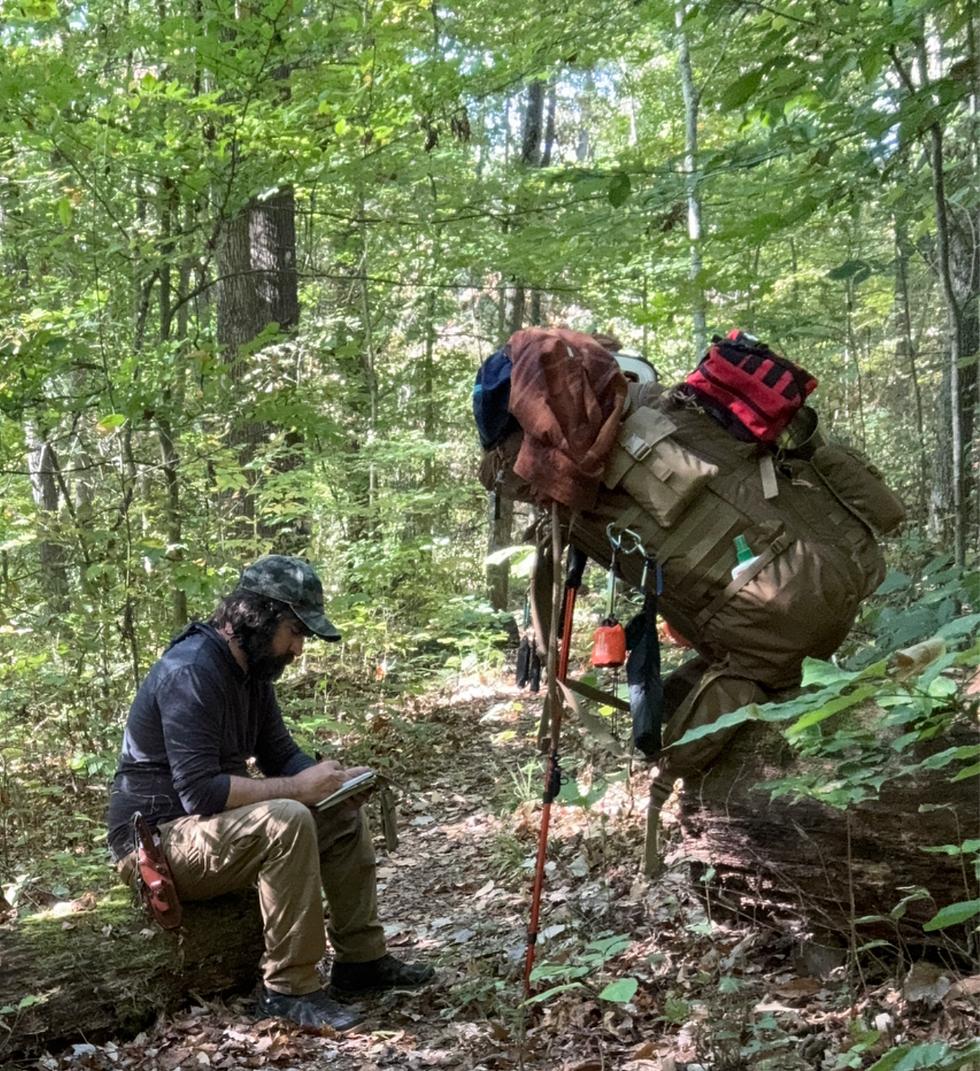Alone on the Trail: Triumphs and Trials of Solo Backpacking
- Jason

- Jan 22, 2025
- 3 min read
Updated: Apr 1, 2025

There’s a peculiar honesty to solo backpacking that can’t be replicated in any other form of adventure. Alone in the wild, the challenges you face are yours to carry—both literally and figuratively. Without the safety net of a partner to share the load or steady your resolve, every decision feels sharper, every obstacle heavier. And yet, it’s this very solitude that makes the experience so uniquely transformative.
Backpacking Alone: When the Trail Tests More Than Your Endurance
Solo backpacking isn’t just a test of endurance; it’s a dialogue with the land. Trails (or lack thereof) often push you into situations where preparation collides with unpredictability. A dry creek where water should flow. A storm that reduces visibility to mere feet. A miscalculated weight in your pack that turns every incline into a battle. These moments don’t allow shortcuts or second guesses—they force you to adapt, recalibrate, and press forward.
Unlike group outings, there’s no buffer against the elements or the creeping self-doubt that inevitably surfaces during long, isolated treks. When exhaustion takes hold and the nearest help is miles away, resilience becomes a choice, not a given.

Solo Backpacking Gear & Self-Reliance: Carrying Your Own Weight
Carrying everything you need on your back—food, shelter, water, tools—grounds you in the reality of your choices. Overpacking? Every unnecessary ounce makes its presence known with each step. Underpacking? A missing tool or insufficient clothing can transform an inconvenience into a serious risk.
In these moments, self-reliance is more than a skill—it’s an ethos. You learn to trust not just your gear but your instincts. The ability to improvise, whether it’s crafting a solution for a broken strap or finding a safe route off-trail, is as essential as the gear itself.
Mental Challenges of Solo Backpacking: Overcoming Doubt & Isolation
Beyond the physical toll, solo backpacking challenges the mind. Hours or days without human interaction leave you alone with your thoughts. It’s a double-edged sword. The stillness of the wilderness strips away distractions, but it also leaves space for fears and doubts to take root.
The silence can be deafening, punctuated only by the rustling of leaves, the snap of a twig, or the distant howl of coyotes. Yet, in this silence, you begin to understand yourself in ways that the noise of daily life often drowns out. The wild demands honesty—it won’t let you hide from what’s inside.

Solo Backpacking Lessons: How Small Wins Shape Big Adventures
Each challenge overcome in the wilderness feels monumental. Lighting a fire in the rain, navigating without clear markers, or simply pushing through a tough section of terrain carries a weight that transcends the moment. These victories are yours alone, unshared but deeply felt.
The lessons stay with you long after the trip ends. You carry them not as burdens but as quiet strengths—a reminder that discomfort often brings clarity and that growth rarely comes without struggle.
Solo Backpacking & Personal Growth: Why You Never Return the Same
Solo backpacking is not about conquering nature; it’s about learning to move with it. The trials it presents—whether physical, mental, or emotional—are not punishments but invitations to grow. Each trip reshapes your perspective, grounding you in both the vastness of the wilderness and your place within it.
And so, you return—not just to the trail, but to life—better prepared to face its uncertainties. Solo backpacking teaches you that strength isn’t the absence of struggle; it’s the ability to keep going, step by solitary step.
Jason Campbell
Copyright- All Rights Reserved




Comments